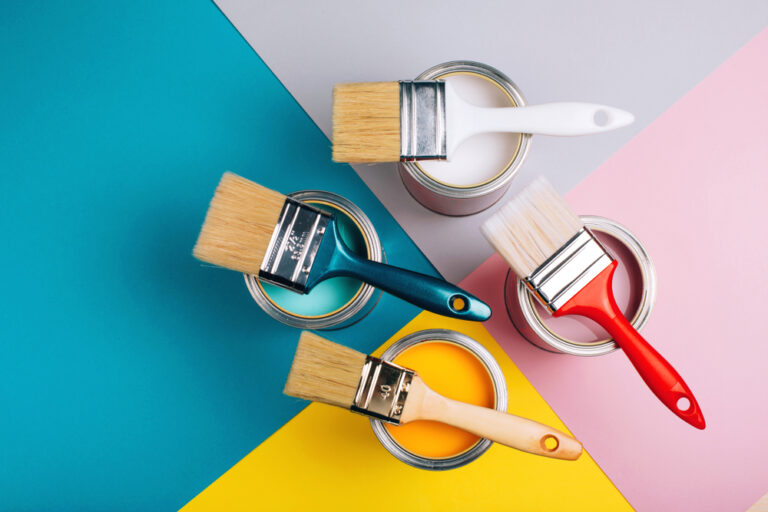Revamping is a popular hobby of homemakers, whether it is transforming the old walls of a house or painting the wooden or plastic furnishings with a fresh coat of paint. Compared to wooden surfaces, painting plastic surfaces can be a bit tricky due to their unique properties, such as their slick, non-porous nature. But with the right type of paint and technique, you can achieve a smooth, durable finish on your plastic surfaces. This guide explores various types of paint, tips for application, and specific recommendations, whether you’re looking to refresh outdoor furniture, give new life to old toys, or personalize your car’s interior to help you choose the best paint for plastic for your project.
Why Is Painting Plastic So Difficult?
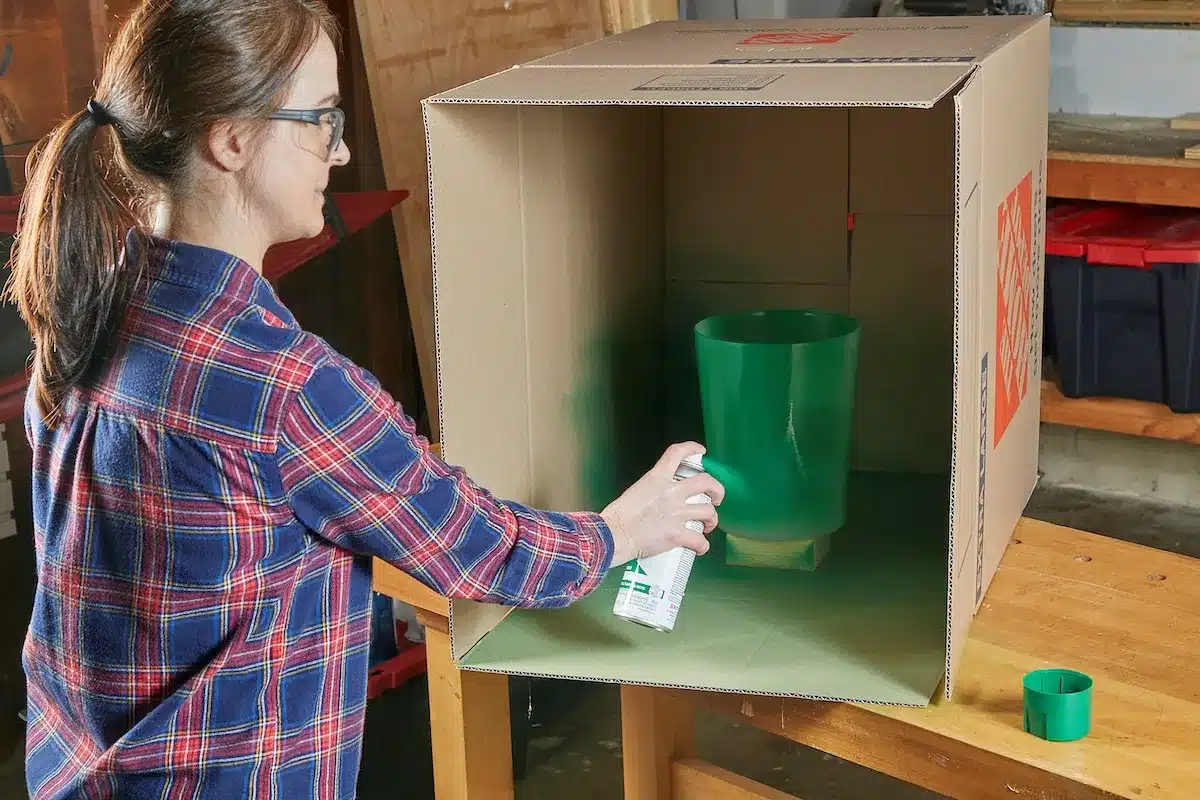
Credit: bobvila.com
Plastic is unique in that it has a slick, non-porous surface, making it challenging for paint to adhere properly. Unlike wood or metal, plastic doesn’t naturally bond with paint, which is why paint for plastic surfaces needs to be specially formulated for smooth plastic. The issue is further complicated by many plastics being treated with mold release agents or chemicals that make adhesion even more difficult.
When painting plastic, skipping preparation steps like cleaning, sanding, and priming can cause the paint to peel or chip off soon after application. The flexibility of plastic also means that it can bend or flex, causing cracks in the paint if not applied correctly. By using the right plastic paint and taking the time to prepare the surface properly, you can achieve a long-lasting finish.
Preparing Plastic for Painting
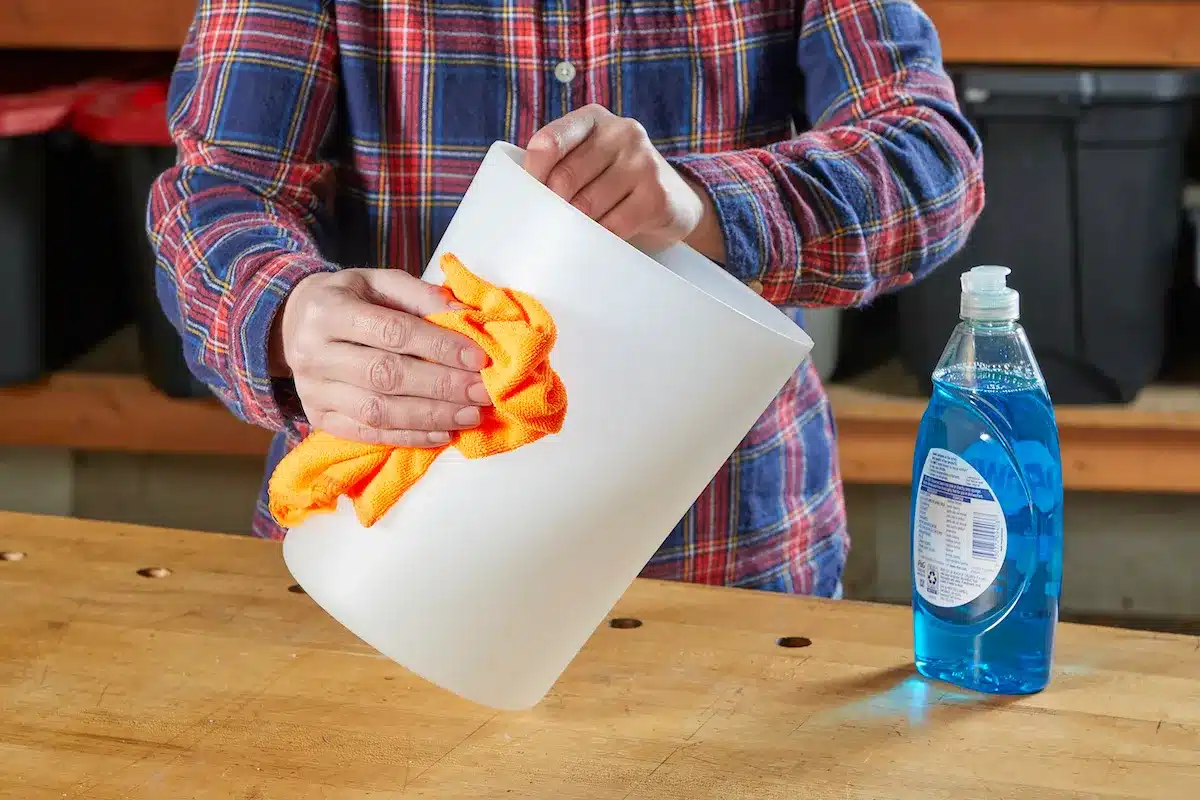
Credit: bobvila.com
Proper preparation is the key to a successful paint job for a plastic surface project. Skipping this step can result in poor adhesion and peeling paint. Follow these steps for the best results:
Clean the Surface Thoroughly
Start by cleaning the plastic surface. Use a degreaser or rubbing alcohol to remove oils, dirt, or any residues that might prevent the paint for plastic surfaces from bonding. You can also use soap and water to clean plastic, but ensure it is thoroughly dry before moving on.
Cleaning is an essential step for any plastic surface because oils and contaminants can interfere with the paint’s ability to stick.
Sand the Surface
After cleaning, use fine-grit sandpaper (around 220-grit) to lightly sand the plastic. This process roughens the surface, providing the necessary texture for the paint to adhere to. You don’t need to sand too aggressively; just scuffing the surface lightly will create enough grip for the plastic paint to stick.
If you skip sanding, you might face peeling paint shortly after your paint job is finished.
Apply a Plastic Primer
A plastic primer is essential when painting plastic surfaces. It creates a bonding layer between the paint for plastic and the surface, ensuring better adhesion and preventing the paint from peeling. There are two main types of primers: oil-based primers and water-based primers.
For the best results, choose a primer specifically formulated for plastic surfaces. Apply a thin, even coat of primer and allow it to dry completely before moving on to the painting stage.
Choose the Right Environment
When you’re ready to start painting, make sure you choose the right environment. Avoid high humidity or extreme temperatures, as they can affect the drying time and finish. Ideal conditions are temperatures between 60°F and 85°F (15°C–29°C) with moderate humidity. Also, ensure that the area is well-ventilated to avoid inhaling fumes, especially when spray painting.
Best Paints for Plastic Surfaces
Once your plastic is properly prepped, it’s time to choose the right paint for plastic. Here are some of the best paints for plastic surfaces, including acrylic paint, enamel paint, and spray paints designed for different types of plastic projects.
Krylon Fusion for Plastic
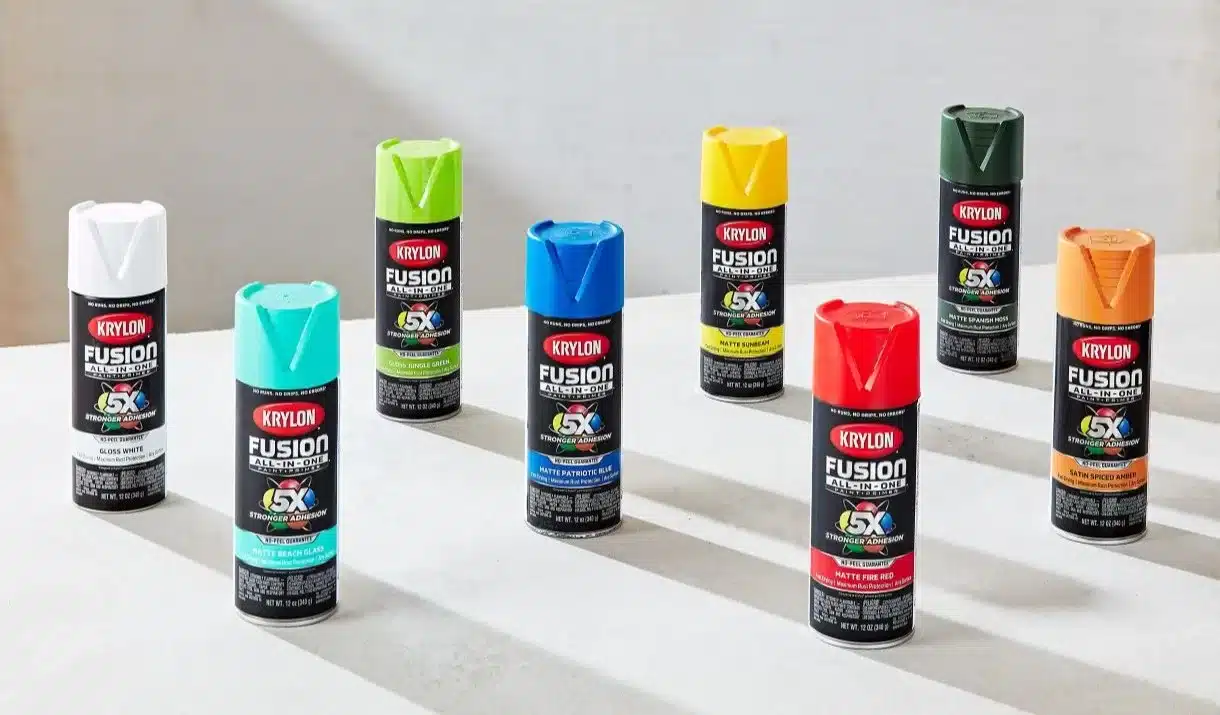
Credit: krylon.com
Explanation: Krylon Fusion for Plastic is a popular spray paint designed for use on plastic. It’s formulated to bond directly with plastic without the need for a primer. This makes it one of the easiest options for painting plastic surfaces.
Pros
- No primer needed: Saves time, as the paint bonds directly with the plastic.
- Durable finish: Chip-resistant and scratch-resistant.
- Quick drying: Dries to the touch in just 15 minutes.
- Variety of finishes: Available in gloss, matte, and satin finishes.
Cons
- Spray application: Requires proper ventilation and masking off surrounding areas.
- Limited adhesion on textured plastics: Best used on smooth plastic surfaces.
Specifications
- Type: Spray paint
- Coverage: Up to 25 square feet per can
- Drying Time: 15 minutes to touch, 1 hour to fully dry
- Finish: Gloss, matte, satin
Best For: Outdoor plastic furniture, plastic toys, plastic planters.
Rust-Oleum Specialty Plastic Spray Paint
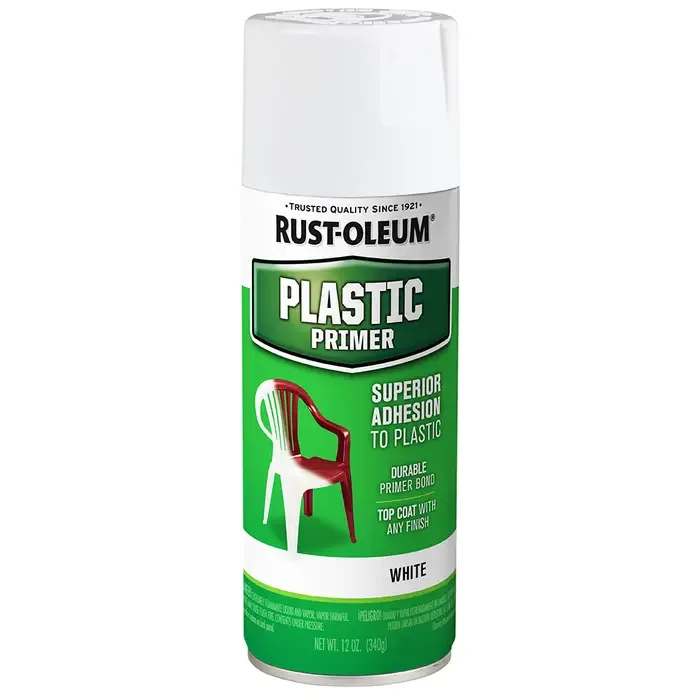
Credit: paintsupply.com
Explanation: Rust-Oleum Specialty Plastic Spray Paint is designed to adhere to plastic surfaces with ease. It’s formulated to resist wear and tear, making it an excellent choice for plastic items exposed to the elements.
Pros
- UV resistant: Offers protection against fading from sunlight.
- Durable: Chip-resistant and can withstand heavy usage.
- Smooth finish: Provides a professional look on plastic surfaces.
Cons
- Requires light sanding: For optimal adhesion, you should lightly sand the plastic surface.
- Longer drying time: Takes about 2 hours to dry fully.
Specifications
- Type: Spray paint
- Coverage: 12–15 square feet per can
- Drying Time: 30 minutes to touch, 1 hour to fully dry
- Finish: Gloss, satin, matte
Best For: Plastic outdoor furniture, plastic garden planters, and plastic storage bins.
Dupli-Color Vinyl and Fabric Spray
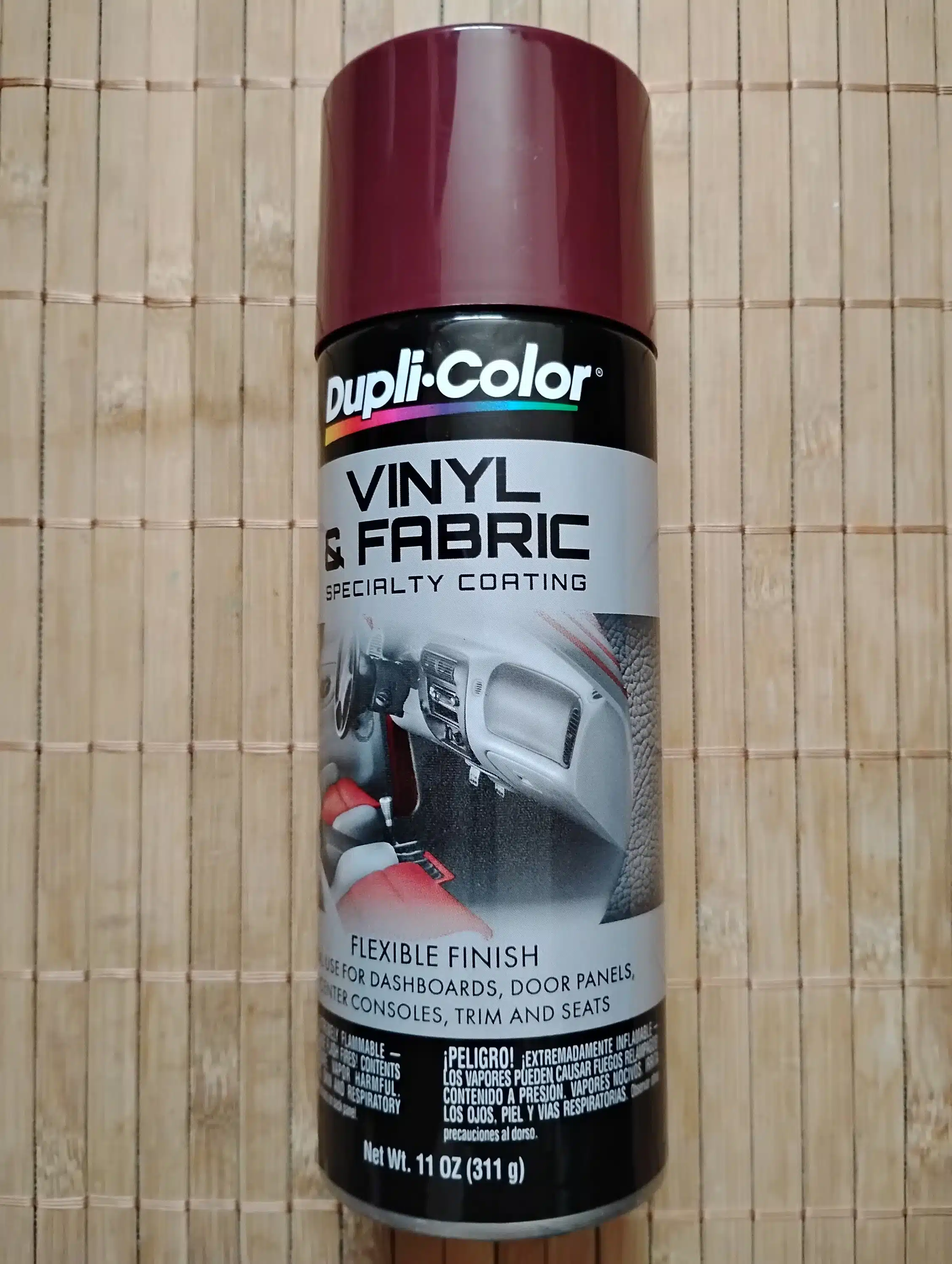
Credit: etsy.com
Explanation: Dupli-Color Vinyl and Fabric Spray is designed for flexible plastic surfaces, like those found in automotive interiors. This paint is perfect for plastic items that need to remain flexible and bend without cracking.
Pros
- Flexible finish: Ideal for surfaces like car interiors and plastic trim.
- Durable: Resistant to wear and tear and provides long-lasting coverage.
- Quick-drying: Allows for multiple coats within a short time.
Cons
- Limited color selection: Offers fewer color options compared to other spray paints.
Best for automotive applications: Primarily recommended for car plastics rather than general plastic use.
Specifications
- Type: Spray paint
- Coverage: 10–12 square feet per can
- Drying Time: 30 minutes to touch, 1 hour to fully dry
- Finish: Gloss and matte finishes
Best For: Car interiors, vinyl upholstery, automotive trim.
Tamiya Color Spray Paint
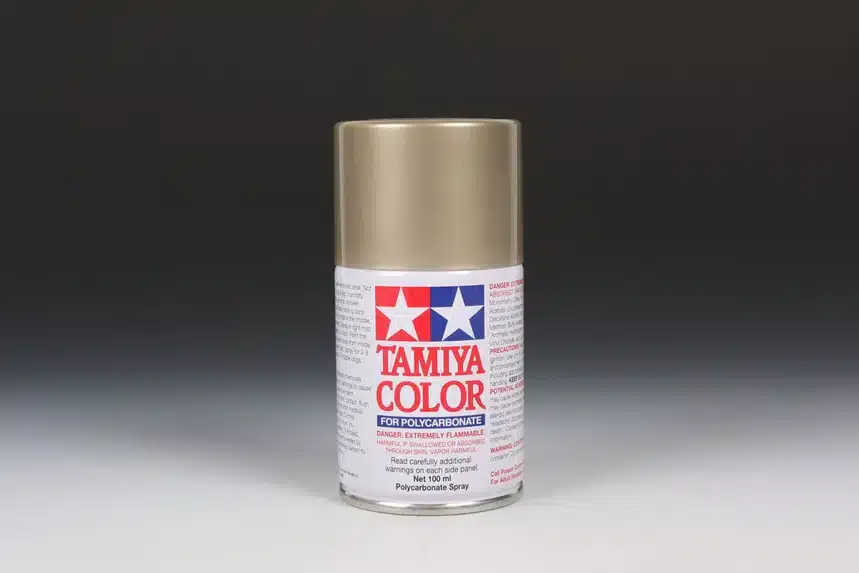
Credit: hillsborohobbyshop.com
Explanation: Tamiya Color Spray Paint is perfect for hobbyists working with detailed plastic projects, such as model cars and figurines. It provides a fine, smooth finish that is great for smaller, detailed work.
Pros
- Fine finish: Ideal for model plastic and miniatures.
Quick-drying: Allows for fast progress on detailed projects. - Precision application: The spray nozzle ensures even coverage.
Cons
- Not for large surfaces: Best for small plastic items or model projects, not large furniture.
- Limited availability: May not be as readily available in stores outside of hobby shops.
Specifications
- Type: Spray paint
- Coverage: 5–10 square feet per can
- Drying Time: 15–30 minutes to dry
- Finish: Gloss, satin
Best For: Model plastic projects, detailed plastic items, and hobby crafts.
How to Apply Paint to Plastic: Step-by-Step Guide
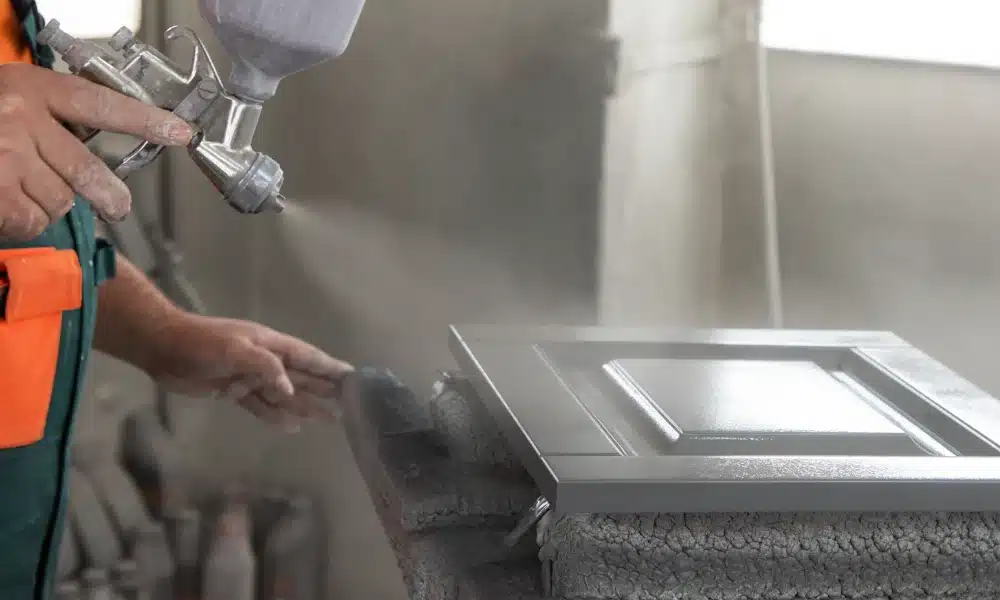
Credit: exteriorplastics.com
Now, let’s talk about the guide to painting plastic with efficiency.
Clean and Sand the Surface
Use a degreaser or rubbing alcohol to clean the plastic thoroughly. After cleaning, sand with fine-grit sandpaper to create a rough texture for better paint adhesion.
Prime the Surface
Apply a plastic primer to create a bonding layer between the paint and the surface. Allow the primer to dry completely.
Apply Paint in Thin Coats
Now, apply thin coats of paint rather than one thick coat. This prevents runs and ensures an even, smooth finish. Wait for each coat to dry before applying the next one.
Allow Drying and Curing Time
Let the paint dry completely before handling or using the item. Depending on the paint, curing can take anywhere from 24 hours to several days.
Final Touches
If desired, apply a clear topcoat to add extra protection and enhance the finish.
Looking for more color inspiration for your next project? Check out the latest 2026 paint color trends to help you choose the perfect shades for your painted plastic items.
Ending Remarks
Painting plastic surfaces doesn’t have to be difficult. By following the proper preparation steps, choosing the best paint for plastic, and applying it correctly, you can achieve a durable, long-lasting finish. Whether you’re working on plastic furniture, toys, or model projects, taking the time to prepare the surface properly and selecting the best paint will ensure the results last.
Frequently Asked Questions
Now, we will wrap up our discussion on painting plastics by answering commonly asked questions.
What is the best paint to use on plastic?
The best paint for plastic depends on your project, but Krylon Fusion for Plastic and Rust-Oleum Specialty Plastic Spray Paint are two of the top choices. Both offer excellent adhesion and durability on plastic surfaces.
Do I need primer when painting plastic?
Yes, primer for plastic is crucial. It helps the paint adhere properly to the surface, especially if the plastic is smooth or glossy. Using a primer will also prevent peeling paint over time.
Can you paint plastic without sanding?
While sanding isn’t always necessary, light sanding helps improve the adhesion of the paint. Skipping this step may lead to poor results, especially with smooth plastic surfaces.
What paint works best on plastic?
Spray paints specifically formulated for plastic surfaces, such as Krylon Fusion for Plastic or Rust-Oleum Plastic Spray Paint, work best for achieving a long-lasting, chip-resistant finish.
Can I paint plastic toys?
Yes, plastic toys can be painted with the right type of paint. For best results, use non-toxic paints like acrylic paint for plastic and ensure proper preparation to avoid peeling or chipping.

